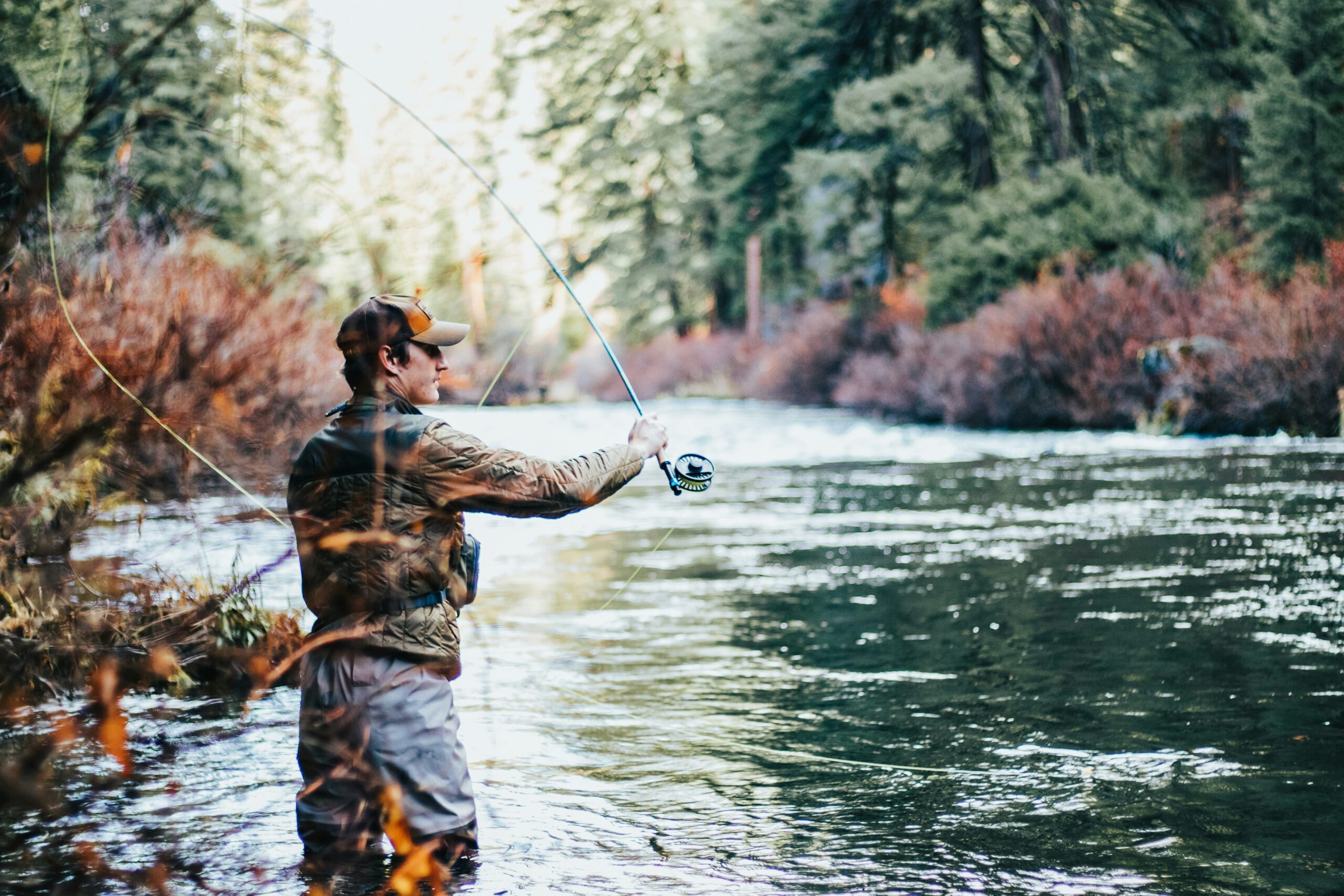
Fishing is more than just a sport; it’s an experience that connects people to nature and provides an opportunity to unwind, relax, and enjoy the outdoors. Whether standing knee-deep in a stream, casting from a boat on a tranquil lake, or braving the waves of the open sea, fishing offers a unique combination of peace and excitement. Casting a line into the water can be a meditative experience, but it can also provide the thrill of a big catch. For many, fishing is an activity that creates lasting memories and strengthens bonds with friends and family.
Starting fishing may seem daunting, but it is an accessible and rewarding hobby for people of all ages. Regardless of whether you’re a beginner or an experienced angler, fishing has something to offer. It allows you to escape the pressures of everyday life and immerse yourself in the serenity of nature. With the right tools and knowledge, fishing can quickly become a pastime you look forward to each season.
Choosing the Right Fishing Gear
One of the first steps in fishing is selecting the right gear. The type of gear you choose will largely depend on the fishing you plan to do. For beginners, a simple fishing rod and reel combo is a great place to start. You can find these at most sporting goods stores, and they are relatively easy to use. You don’t need a lot of fancy equipment to get started, but you will need the basics: a rod, reel, line, hooks, and bait.
As you progress and gain more experience, you should experiment with different types of rods, reels, and tackle. Each fishing gear is designed for specific types of fish or fishing environments. For instance, fly fishing requires specialized equipment, including a lightweight rod, reel, and artificial flies that mimic insects. Deep-sea fishing calls for heavier rods and stronger lines to handle large catches like marlin or tuna. Understanding what you need for your preferred fishing style will help you make informed decisions as you build your fishing arsenal.
Understanding Fishing Techniques
Joy of Fishing is as much about skill as it is about patience. Learning the different techniques will significantly enhance your experience, whether fishing in fresh or saltwater. One of the most common methods is casting, where you throw the bait hook into the water and wait for a fish to bite. This technique is ideal for lakes, rivers, and coastal areas, as fish bite when attracted to the bait.
Another technique is trolling, which involves slowly pulling a baited hook behind a moving boat. This method works well for catching fish in open water, where fish spread out. Anglers often use it in deep-sea fishing, but it can also be effective in freshwater lakes. Additionally, fly fishing is a specialized technique that mimics insects’ movement on the water’s surface. It requires a specific kind of rod and reel and knowledge of the types of flies that fish are most attracted to. Each technique offers its own challenges and rewards, making fishing a versatile and dynamic activity.
Choosing the Best Fishing Location
Where you fish can significantly influence your chances of success. Different fish species thrive in other environments, so knowing where to go is essential based on what you’re trying to catch. Freshwater fishing, for example, can be done in lakes, rivers, and ponds. These areas are home to species like bass, trout, and bluegill. The beauty of freshwater fishing is that it can be done on calm, scenic lakes or fast-moving rivers, each offering a unique experience.
For those interested in saltwater fishing, coastal areas, bays, and the open sea are prime locations. Saltwater fish like tuna, marlin, and redfish require different techniques, and you’ll need to understand tidal patterns, water depth, and fishing seasons. In both cases, local knowledge can be invaluable. Talking to experienced anglers or visiting a local tackle shop can provide insights into the best fishing spots and what bait works best for your target fish. The correct location increases your chances of catching fish and enhances the overall fishing experience, giving you a deeper connection to the water.
Fishing as a Social and Therapeutic Activity
Beyond the excitement of catching fish, fishing offers social and therapeutic benefits, making it a truly special activity. For many, joy of fishing is an opportunity to bond with family and friends. Whether you’re sharing stories on the dock or competing to catch the biggest fish, fishing fosters camaraderie and creates shared experiences that strengthen relationships. People of all ages can enjoy it, making it perfect for family outings or group adventures.
Joy of Fishing also offers significant mental and emotional benefits. The peaceful nature of being on the water, combined with the rhythmic action of casting and reeling, provides a sense of calm that can be therapeutic. For many anglers, fishing allows them to disconnect from the stress of daily life and focus on the present moment. This sense of mindfulness and relaxation is one of the reasons fishing is so popular for people seeking mental clarity and stress relief. It’s a peaceful escape where you can recharge, reflect, and enjoy the beauty of the natural world.
Fishing is a timeless activity that offers more than just a chance to catch fish. It provides a connection to nature, an opportunity to develop skills, and a way to build lasting memories with loved ones. Whether casting from the shore of a quiet lake or venturing into the open ocean, fishing allows you to experience the thrill of the catch while enjoying the peaceful serenity of the water. With the right gear, techniques, and knowledge, fishing can become a lifelong passion, offering a wealth of rewards beyond what can be measured on a scale. So, whether you’re new to the sport or an experienced angler, the joy of fishing is something everyone can appreciate.